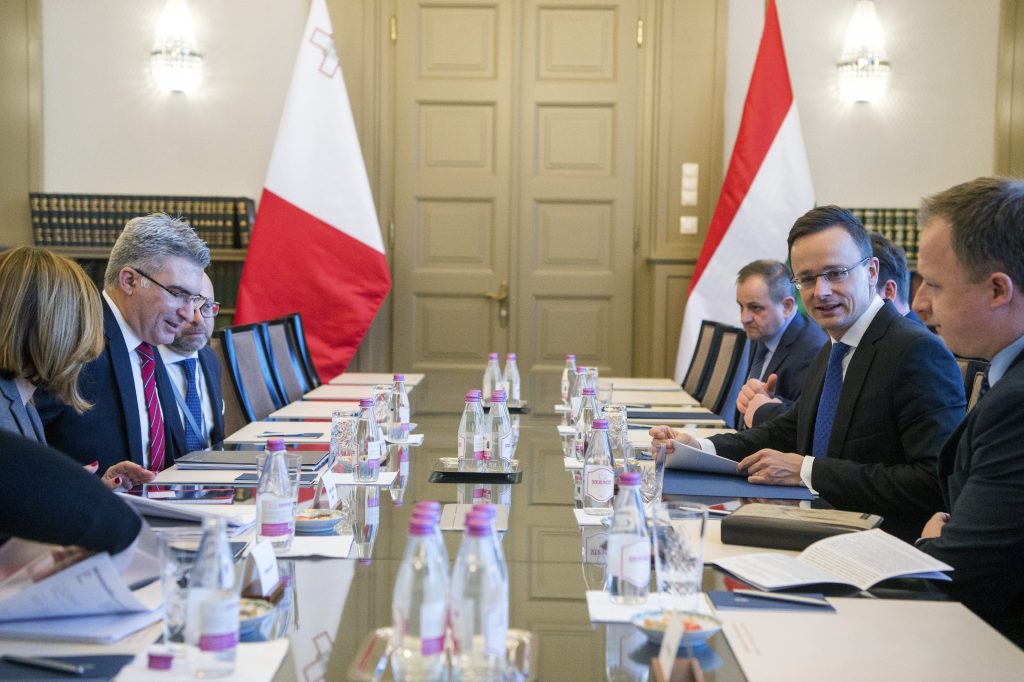Hungary, Malta grasp severity of migration crisis – Maltese foreign minister in Budapest

Hungary and Malta fully grasp how severe the migration crisis is and what responses are needed, Péter Szijjártó, the Hungarian foreign minister, said after talks with Carmelo Abela, his Maltese counterpart, on Wednesday.
Speaking at a joint press conference after the meeting, Szijjártó said the two countries had agreed that decisions on services provided for migrants should be left in the hands of member states. Malta and Hungary both view illegal border crossing as a crime rather than as an administrative matter and neither considers migration a fundamental human right, he said. Both argue that illegal migration should be stopped as far from the borders of Europe as possible by helping where the trouble is, Szijjártó said.
Although they differ on the UN migration compact which Malta accepted and Hungary rejected, Malta also attached a declaration showing many similarities with the Hungarian stance to the UN pact, he said.

Szijjártó noted that sea borders are much more difficult to protect than land borders. The “starting point” should be that the EU dispenses with its migration policy, which amounts to an invitation for migrants, inspiring masses to risk their lives to get to Europe, he said.
Malta and Hungary both view sovereignty as of paramount importance and are ready to settle any disputes with mutual respect, he said. They cooperate within the UN, with Hungary supporting Malta’s aspirations to become a non-permanent member of the Security Council.
Over 3,000 Hungarians live in Malta currently, and 28,000 spent their holidays there last year, he noted. A direct flight between the eastern Hungarian city of Debrecen and Malta will be launched on April 1 and is expected to further lift visitor numbers, he said.
To deal with the growing flow, Hungary will open a consulate in Valletta, Szijjártó said.
Bilateral trade jumped by 88 percent in 2018, reaching 50 million euros, he said.
Abela said that migration is a global crisis that countries must find a solution to together. The two countries do not always see eye to eye but always respect each other, he said.
Source: MTI







